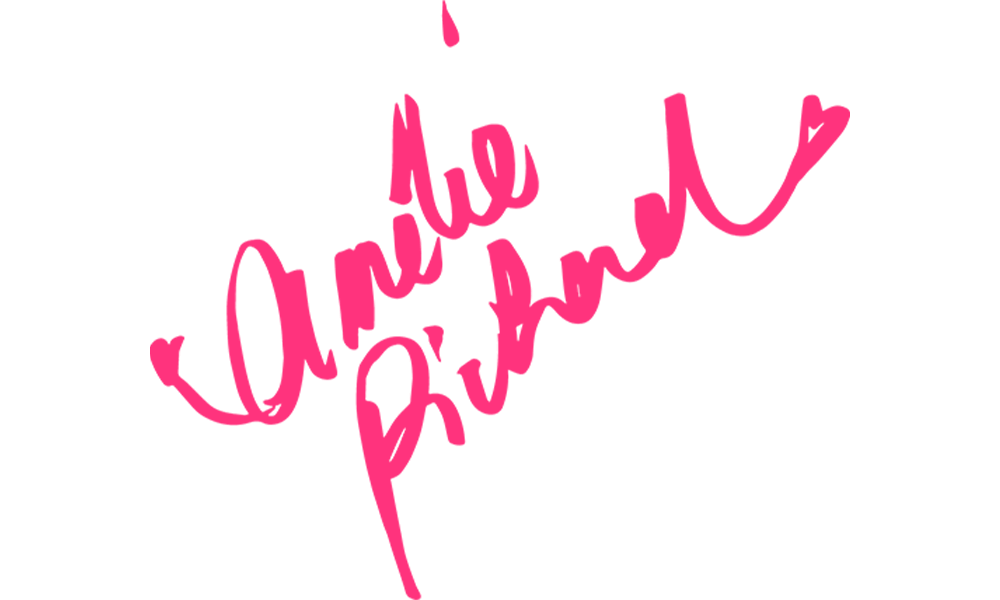Wheelbarrow,
Varan Motors
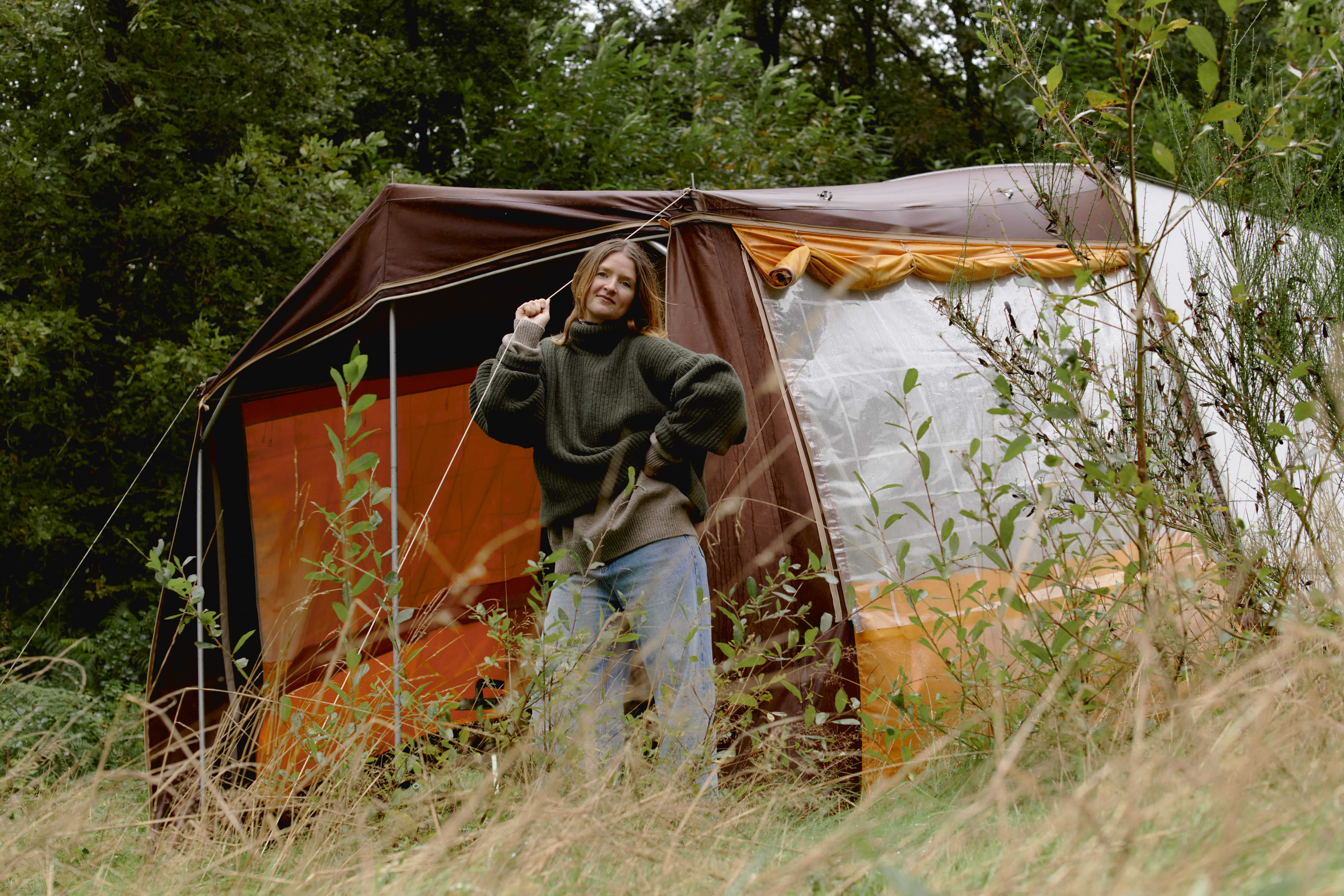
Designer
Amélie Pichard is undeniably one of the subversive minds of fashion: unclassifiable, avant-garde, she is also a true utopian. The creator of her eponymous brand of bags and shoes, Amélie Pichard, founded back in 2011, she has always believed in the need for a paradigm shift: from collaborating with Pamela Anderson to launch a vegan leather collection to fabricating UFO handbags made from a Brazilian Elephant Ear leaf. With its ironic tone and its political vision, Amélie has transformed minds and even the way we buy. For years, she tried to align her values in a fashion environment that often forgets common sense, on the altar of overproduction and money. It was a crazy and difficult bet to keep: and if she stopped her label today, she would have injected fashion with a rare sense of ethics. In these past months she has decided to gradually turn the page on her brand to think about other concepts. Located in le Perche, two hours from Paris, she is now on a mission to reinvent our way of conceiving rurality, housing and creation.
It started with a real crush on le Perche, in the Eure-et-Loire region, an enigmatic countryside where Parisians in search of nature now congregate. Amélie and her partner tried to buy an entire ruin there, and in the meantime, rented a house on a stud farm. The sale did not go through, but Amélie came across another property: an old hunting lodge in the shape of a cube, lost in the forest. In the 70s, a Parisian doctor came to spend his weekends there, without electricity, and then, this curious habitat saw many lives. “Every time someone lived there, they enlarged it, transformed it.” These successive metamorphoses fascinated Amélie who loves distortion and mutations. The house is open to the outside, sober, and neutral. Amélie and her partner are making their house as environmentally responsible as possible. “There was a pink plaster, we dyed it green to respect the fauna. Today, tiger spiders are settling there, they think they are at home.”
Amélie wanted to create a “box” in the middle of nature, totally open to the outside. She put cork on the floor, and left certain raw materials visible, she likes the finishes to be visible, the imperfections reassure her. After the 50s and rattan style that she once cherished, she now prefers the aesthetic of the 80s, a minimalistic approach, with its wood, metal, resins and Plexiglas. She evokes the industrial design of Ettore Sottsass. More than housing, it’s a reflection. It’s a space that takes her somewhere else: professionally and intimately. When she moved there, she had just gone through a difficult time after giving birth, and she needed shelter. Thanks to it, she keeps the system at a certain distance. She only goes to Paris one day a week, and it redraws her relationship with the city, but also with the creative world. She’s now a passenger, and she appreciates it. “I’ve always been a homebody; I didn’t like networking. When I was an entrepreneur, people thought I was snobbish, but the truth was I was in trouble and just trying to get out of it.” Amélie is always honest, which gives her projects a raw and beautiful truth. There is always a meeting of the raw and the sensitive, in Amélie – both concerning the materials she uses, as well as in her very aesthetic, her vision of art: we will remember the pink satin bed that she had installed in her first Parisian shop, which met the somewhat brutalist plastic of its walls. In Amelie Pichard’s universe, cheesy humor also meets slightly gory and David Lynch-like cinematic references, forming a free and erudite, complex universe, with tender, and slightly grating accents.
Her label has gradually eclipsed, but it is a carefully orchestrated disappearance. Most recently she was creating on demand – another way of producing by limiting stocks and avoiding overproduction, and without a fixed store.
Her work is more akin to an art happening – the bizarre and hypnotizing curves of her platform shoes and her bags sealed with a crocodile were like a disruptive act in the sanitized fashion world. Even her campaigns were all veiled criticisms of consumerism, which tended to brush with the absurd.
Nowadays, she has gone further, staging “the death” of Amélie Pichard. Still mourning it, she concedes that in a capitalist world, good ideas struggle to materialize. “I always saw what I did as pure creation, a laboratory for thinking about the future, ecological and social. The problem, obviously, is that this fits poorly with the business dimension. For your brand to work today, you must support influencers, overproduce–that didn’t suit me.”
Today, she has a rural hotel in mind, but again, her vision is more political than business. “I don’t want a place reserved for Parisians, but to create a real movement.” She concedes that there is a gap between Parisians and the residents of rural communities. She is thinking about creating projects that are viable, and that orchestrate encounters, a real economic shift – “rather than populating the countryside with second homes, how can urban people really invest in them?” she asks herself. Many Parisians who moved to le Perche with the romantic notion of returning to the land often ended up in debt, exhausted by the truth of rural life, she explains. There is much to reconsider in order to decentralize creative energy and establish it in the heart of wild nature.
For Amélie, it’s important to find other forms of organization, such as cooperatives to renew the dialogue – her partner works in a collaborative grocery store on weekends. She is a thinker, as much as a creator, who wants to share her visions and help other companies. “For the moment it is this impulse that I want to bring.” As always, she sparks crucial reflections and sets the movement in motion–this is her art: knowing where creation must be positioned to address social and climate issues, placing it at the heart of change.
By Claire Touzard for Semaine.
Photography by Clémence Louise Biau
She may be from the countryside but her insider knowledge of where to go in Paris is top notch. If you are a fan of vintage, then make sure to head to Amélie’s favourites.
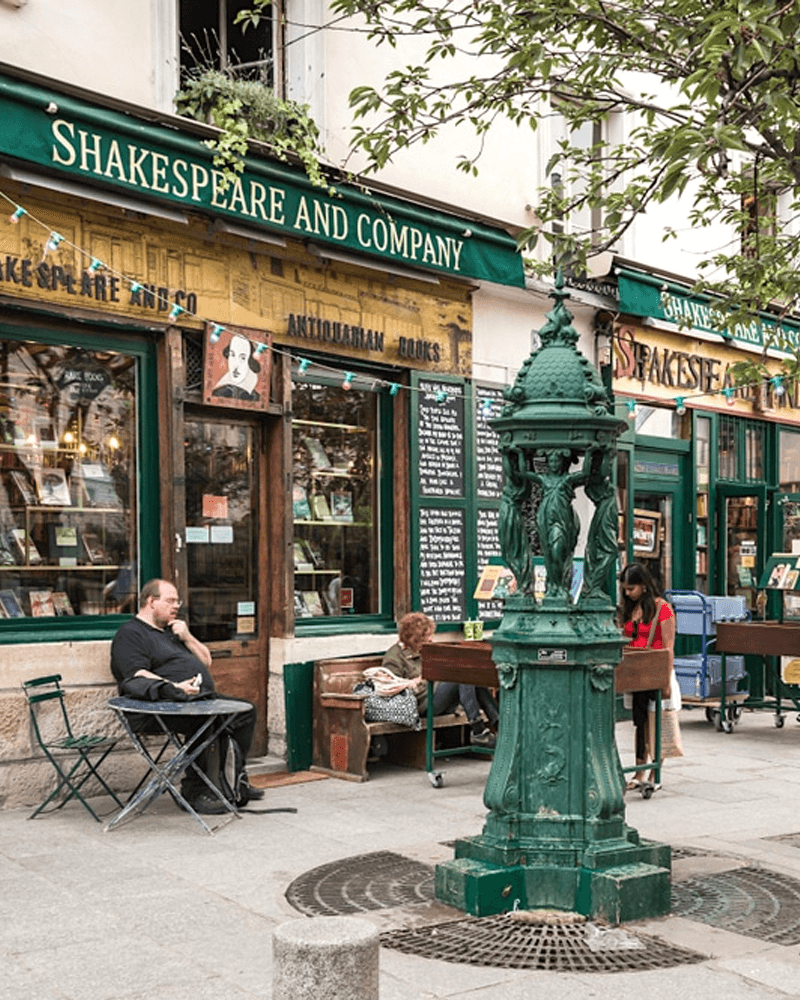
"You don’t feel like you are in Paris, because everything around you is in English, but you are in front of Notre Dame. I love that contrast.”
37 Rue de la Bûcherie 75005 Paris,
France
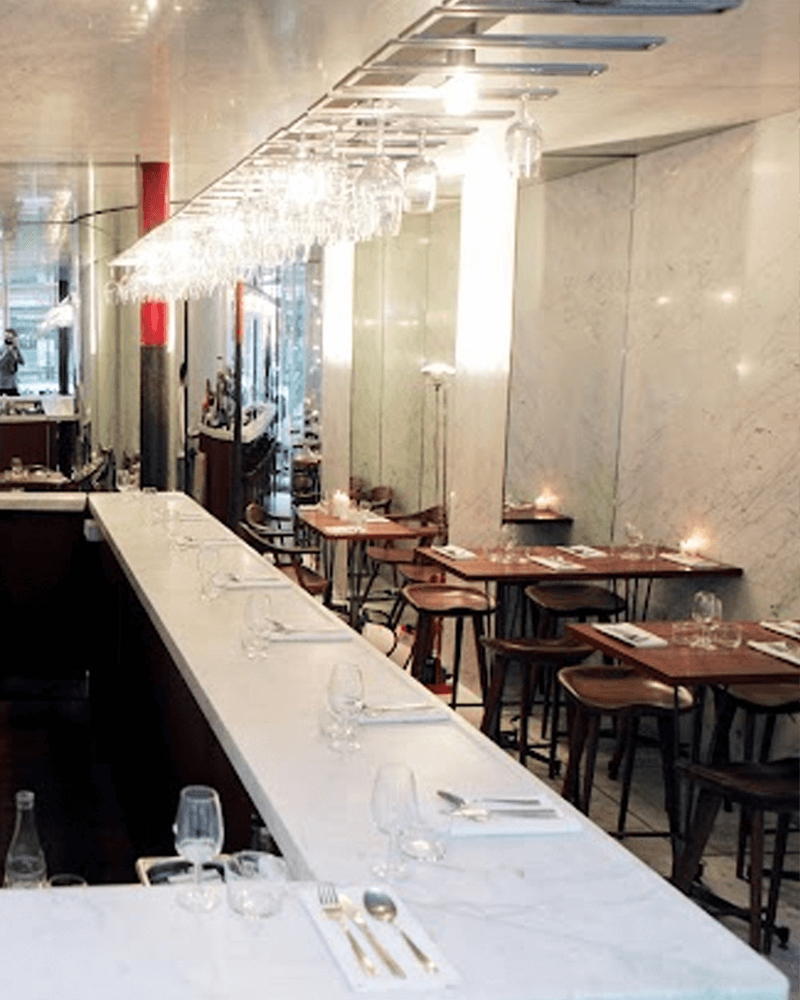
"Le Dauphin has the best natural wine and tapas food. It is still in my heart."
131 Avenue Parmentier 75011 Paris,
France
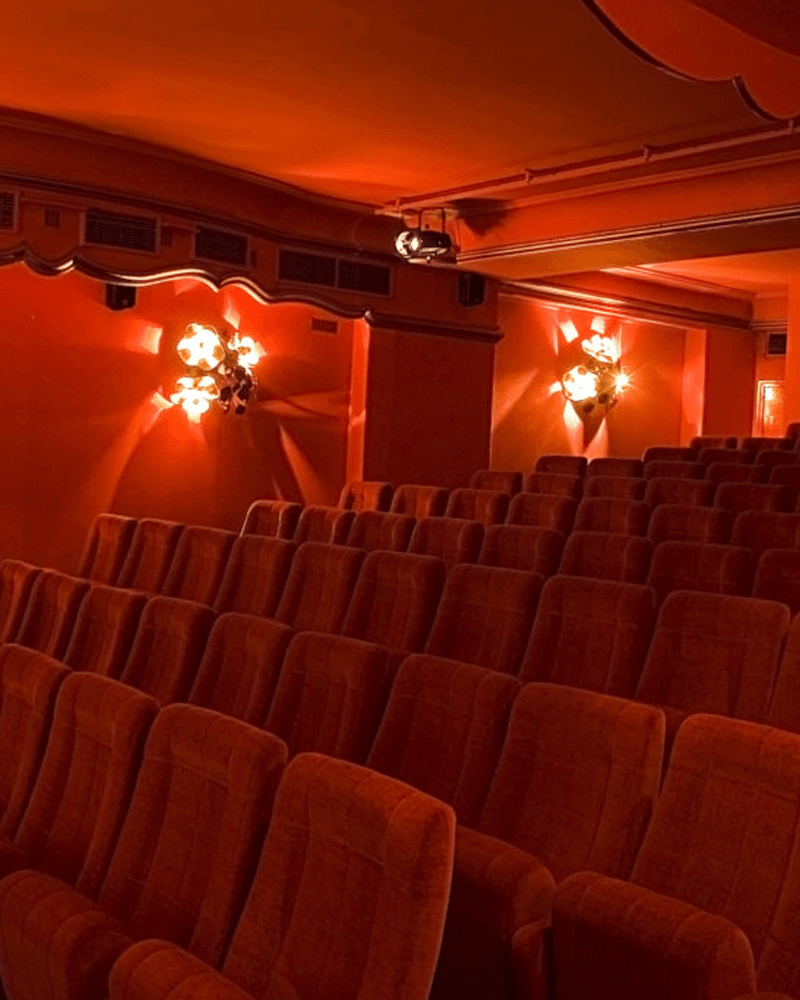
"When I am in a nostalgic mood I like to go there and watch an old iconic movie!"
9 rue Champollion, 75005 Paris,
France
Maybe the most sensual bookshelf we have ever laid our eyes on.
With muse Pamela Anderson as its star, there’s no surprise Baywatch is at the top of Amélie’s list.

"Baywatch, 1989, I hope Netflix will add Baywatch soon@ My favourite teenager souvenir!"

Become a member today to enjoy all our Tastemakers address recommendations on our interactive travel guide world map!
SUBSCRIBE NOWWhat does the word “taste” mean to you?
Amélie:
Flavour.
Do you have a life motto that you live by?
Amélie:
Trust your gut.
What was the last thing that made you laugh?
Amélie:
My husband.
What are your favourite qualities in a human being?
Amélie:
A sense of humour.
Who is your hero?
Amélie:
Every person who aspires to be different and unique.
What is your biggest flaw?
Amélie:
I sleep too much.
What is your best quality?
Amélie:
My quality of sleep is good.
What would your last meal on earth be?
Amélie:
Tacos and Margaritas.
What does success mean to you?
Amélie:
Not sustainable.
If you had the power to change anything you wanted in the world, what would you change?
Amélie:
People’s selfishness.
